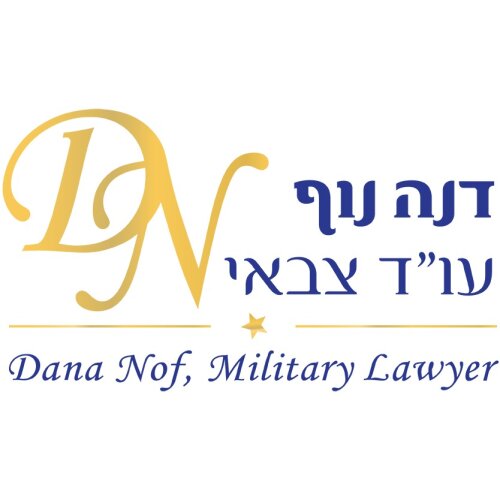Best White Collar Crime Lawyers in Haifa
Share your needs with us, get contacted by law firms.
Free. Takes 2 min.
List of the best lawyers in Haifa, Israel
About White Collar Crime Law in Haifa, Israel
White Collar Crime typically refers to non-violent crimes committed in commercial situations for financial gain. In Haifa, Israel, as in the wider state, such crimes can include fraud, embezzlement, insider trading, bribery, cybercrime, and money laundering. Haifa, being a significant technological and commercial hub, sees a fair share of white-collar crime cases. The legal frameworks governing these offenses are stringent, designed to maintain business integrity and protect economic interests.
Why You May Need a Lawyer
There are numerous situations in which an individual or a business entity might require legal assistance regarding white-collar crime in Haifa:
- Accusations or Charges: If you are accused or charged with a white-collar crime, a lawyer can help you navigate the complex legal system and build a defense strategy.
- Compliance Issues: Businesses may need legal advice to ensure they comply with laws and regulations to avoid criminal conduct unintentionally.
- Investigation Support: If your company is under investigation for alleged white-collar crimes, a lawyer can represent your interests and provide essential guidance.
- Fraud Prevention: Legal experts can also assist in setting up internal processes to prevent fraud and other white-collar crimes.
Local Laws Overview
White collar crime in Haifa is governed by several key pieces of legislation and legal principles:
- The Penal Law, 5737-1977: This law comprises various sections dealing with different types of fraud and white-collar crimes, including breach of trust, embezzlement, and bribery.
- The Prohibition on Money Laundering Law, 5760-2000: Regulates the efforts against money laundering activities and mandates strict reporting and compliance measures.
- Regulations by the Israel Securities Authority (ISA): These regulations are pertinent for cases involving insider trading and other securities-related crimes.
Frequently Asked Questions
What constitutes white-collar crime in Haifa, Israel?
White-collar crime includes non-violent financial crimes such as fraud, embezzlement, insider trading, money laundering, and bribery.
What should I do if I am accused of a white-collar crime?
Contact a lawyer immediately to discuss your case and receive guidance on how to proceed legally and strategically.
Can white-collar crimes result in jail time in Israel?
Yes, white-collar crimes can result in significant penalties, including imprisonment, depending on the severity and specifics of the case.
What are common defenses against white-collar crime accusations?
Common defenses include lack of intent, insufficient evidence, entrapment, and proving compliance with relevant laws and regulations.
Are there preventative measures businesses can take against white-collar crimes?
Yes, businesses can implement robust compliance programs, regular audits, employee training, and establish a clear code of ethics to prevent white-collar crimes.
How long do investigations for white-collar crimes usually take?
The duration of investigations can vary based on the complexity of the case, ranging from several months to several years.
Is it possible to settle white-collar crime cases outside of court?
Yes, many white-collar crime cases are settled outside court through plea bargains or settlements, depending on the circumstances and negotiations.
What agencies investigate white-collar crimes in Haifa?
The Israel Police, the Israel Securities Authority, and other regulatory bodies investigate white-collar crimes in Haifa.
Can a company be held liable for the actions of its employees?
Yes, companies can be held liable for crimes committed by their employees if it is proven that there was a lapse in supervision or compliance.
What are the consequences of a white-collar crime conviction?
Consequences can include fines, imprisonment, loss of professional licenses, reputational damage, and civil liability.
Additional Resources
If you require further information or assistance, consider reaching out to the following resources:
- Israel Bar Association: Provides listings of qualified lawyers specializing in white-collar crime.
- Israel Securities Authority: Responsible for regulating the securities market and preventing securities fraud.
- Israel Police Economic Crimes Unit: Handles investigations related to economic and white-collar crimes.
Next Steps
If you need legal assistance in white-collar crime, consider the following steps:
- Consult with a Lawyer: Seek immediate consultation with a lawyer experienced in white-collar crime law to understand your situation better.
- Gather Documentation: Collect all relevant documents and information related to your case to facilitate a comprehensive assessment by your legal advisor.
- Address Compliance: If you represent a business, ensure all compliance measures are actively being followed to mitigate risks.
- Follow Legal Advice: Adhere to the legal guidance provided by your lawyer to navigate your case successfully.
Navigating the complexities of white-collar crime law requires specialized legal expertise, particularly in a jurisdiction like Haifa. Seeking professional legal help is crucial to safeguard your rights and interests.
Lawzana helps you find the best lawyers and law firms in Haifa through a curated and pre-screened list of qualified legal professionals. Our platform offers rankings and detailed profiles of attorneys and law firms, allowing you to compare based on practice areas, including White Collar Crime, experience, and client feedback.
Each profile includes a description of the firm's areas of practice, client reviews, team members and partners, year of establishment, spoken languages, office locations, contact information, social media presence, and any published articles or resources. Most firms on our platform speak English and are experienced in both local and international legal matters.
Get a quote from top-rated law firms in Haifa, Israel — quickly, securely, and without unnecessary hassle.
Disclaimer:
The information provided on this page is for general informational purposes only and does not constitute legal advice. While we strive to ensure the accuracy and relevance of the content, legal information may change over time, and interpretations of the law can vary. You should always consult with a qualified legal professional for advice specific to your situation.
We disclaim all liability for actions taken or not taken based on the content of this page. If you believe any information is incorrect or outdated, please contact us, and we will review and update it where appropriate.










